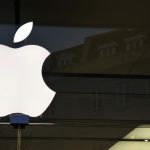Apple CEO Tim Cook's email to employees about Steve Jobs' death
Tech loses a visionary: Steve Jobs dead at 56
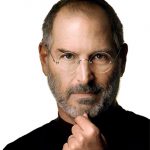
The tech world has lost one of its greatest visionaries: Apple has confirmed that Steve Jobs died on Wednesday due to complications from pancreatic cancer at the age of 56. Apple confirmed his passing on its website, although immediately did not give any further details.
A statement from Jobs’ family said that he died peacefully surrounded by those he loved, and noted how much he cherished his family. They expressed their thanks to those that had passed on their well-wishes during his extended illness.
Steve Jobs' health is a private matter

Now that he's no longer Apple CEO, it is.
During Jobs' two medical leaves, starting in early 2009 and 2011, I argued that his health was not a private matter. Apple is a public company, majorly owned by shareholders -- not Jobs, the company's board or any other executive or employee. In Jobs' role as chief executive, and as someone so closely identified with Apple, health impacted his ability to perform daily duties and, therefore, could affect Apple operations and financial performance. Jobs is no longer chief executive. He remains an Apple employee, according to a recent 8-K filing but in unspecified role, and is Chairman of the Board. But he is no longer directly responsible for Apple operations.
Thank you, Steve: 20 key products introduced by Jobs
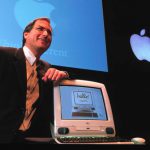
As the world digests the shock of Steve Jobs departing as Apple's iconic CEO and pontificates over stock prices and future leadership, we decided to take a look back at the innovations he oversaw -- both the flops and those that changed the world.
No matter how you feel about the company or Jobs himself, it's impossible not to recognize the incredible turnaround Apple has seen in the past 10 years -- and the industry it has transformed in the process. Apple has consistently been at the forefront of innovation, design and culture, inspiring a generation to look at technology not as a tool, but as a way of life.
It was time for Steve Jobs to go

In my six-plus years covering Cupertino here and elsewhere I can tell you I did not expect to write a story like this for quite a few more years yet. Apple is Steve Jobs, and Steve Jobs is Apple.
But let's talk turkey here: Jobs' health has been an issue, almost a morbid fascination among the tech press. Whole stories were devoted to analysis on his appearance as it obviously changed from keynote to keynote.
Investors uneasy after Steve Jobs resigns
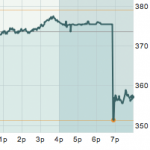
Apple shares fell 6 percent in after-hours trading tonight following Steve Jobs' stunning and unexpected resignation. Apple's board named COO Tim Cook, who has been running the company for about eight months, as Jobs' successor.
Apple shares were down more than $20 after-hours. Before the resignation announcement, Apple shares closed up slightly -- $373.60, off the opening of $373.46. The real question: How will investors react tomorrow when markets reopen for trading?
Steve Jobs resigns!
Apple needs Jony Ive more than it does Steve Jobs
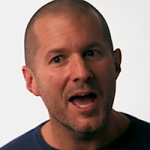
There has been lots of recent speculation about whether Apple can go on without its CEO should he not return from medical leave. Steve Jobs may be visionary and iconic, but Jony Ive's value simply can't be overstated. Apple's vice president of industrial design has influenced most of the major hardware product designs since joining the company in 1996. I have long felt that Apple could more easily go on without Jobs than Ive, but never really had cause to state so until today, following a report from the Sunday Times of London that is spreading like wildfire across the InterWebs.
Ive is the creative genius behind designs for iPad, iPhone and iPod, which, combined, accounted for two thirds of Apple revenues during calendar fourth quarter. He takes credit for Macs, too -- aluminum PowerBook, iMac, Titanium PowerBook and unibody MacBook Pro. Ive is an indispensable employee -- like Chief Creative Officer John Lasseter is to Pixar -- someone Apple shouldn't want to lose. If the Times report is even marginally accurate, Ive and Apple are in a tuff over whether he works in Silicon Valley or his native United Kingdom. The outcome raises questions about his departure from Apple.
Apple celebrates Steve Jobs' birthday with dual- and quad-core MacBook Pros
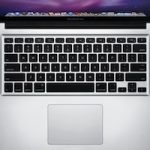
Today, Apple finally brought MacBook Pro up to speed with Windows laptops. After skipping the last generation of i Core chips, Apple adopted new Intel "Sandy Bridge" processors for some MacBook Pro models. In a surprising, but rumored move, Apple swapped out nVidia graphics for integrated Intel and AMD graphics. Apple updated all three MacBook Pro lines -- 13.3-inch, 15.4-inch and 17-inch. Apple also introduced a new peripheral port called "Thunderbolt."
The new configurations represent hefty upgrades across the board -- for example, bumping up storage capacity in the entry level MacBook Pro from 250GB to 320GB and doubling the memory on some other models. However, in a disappointing move, Apple did not upgrade 13-inch models' display resolution from 1200 x 800 to match MacBook Air's 1366 x 768.
Steve Jobs' health is not a private matter
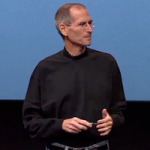
Sadly, I must reaffirm my position stated during Apple CEO Steve Jobs' last medical leave, in January 2009: His health situation isn't a private matter, and, frankly, it's even less so now. The seeming suddenness of Jobs' more recent medical leave, which this time is open-ended, raises reasonably disconcerting questions about how long he can continue as chief executive and whether Apple has in place an appropriate succession plan. I didn't expect to return to this topic again, and surely Macheads will beat me aside the head with snide and accusing comments or rebuttal blog posts. So be it.
As leader of a public company, Jobs has no inherent right to privacy where his ability to act as CEO is concerned. Jobs' share in Apple was, last time I checked, well below 5 percent. He isn't principal owner of Apple, tens of thousands of shareholders are. If not Jobs, then at least Apple's board of directors has a responsibility to appraise shareholders about such an iconic CEO's realistic ability to continue in the role. Right now, Jobs has essentially abdicated the responsibility for an undetermined amount of time. In a January 17 letter, Jobs explained that he had "asked [COO] Tim Cook to be responsible for all of Apple's day to day operations." Not some responsibility but all.
Apple's future without Steve Jobs won't be as bright
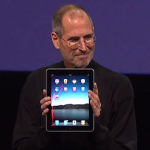
Today is an important, perhaps defining, day for Apple. As US stock markets open, investors will give their vote of confidence about the company's future. Yesterday, in a stunning and unexpected announcement, Apple CEO Steve Jobs took another medical leave, but this time with no set time period like the last one. "When, or perhaps that should be if ever, will Jobs return and what does it mean for Apple?" is question of the day. Later, after the stock market closes, Apple plans to announce holiday quarter earnings results.
"Strange they left it until a day that the stock markets are closed," observed Betanews reader Brian Butterworth. Commenter rrode74 made similar observation: I have zero doubt Apple announced this [yesterday] when US markets are closed. Apple manipulates even when Steve's health hangs in the balance. With the stock having climbed so high so fast, even with Steve it will hit a peak and come down. This could bring it down much faster." Apple opened at $327.05, or about 5 percent off the previous close.
Steve Jobs takes another medical leave from Apple
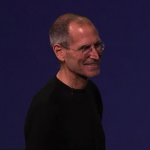
Two years ago this month, Apple CEO Steve Jobs left Apple for a six-month medical leave. Today, the company revealed that Jobs is going again, but for indeterminate time. The open-ended time period may unsettle some investors -- in a stock that has been high-flying for the better part of 18 months. Apple made the announcement during a US holiday, official observance of Martin Luther King, Jr.'s birthday, and a day before announcing holiday quarter earnings.
Jobs had survived a rare form of pancreatic cancer that is curable; he revealed his cancer fight in mid-2004. But by summer 2008, Jobs' gaunt appearance caused a rash of rumors about his heath -- that and how little time he spent on stage during Apple events. Jobs caused another stir in December 2008 by announcing he wouldn't give the Macworld 2009 keynote. About a month later, when he announced the medical leave, health emerged as one, if not the major, reason.
What is Steve Jobs so afraid of?

There's a saying that the more you have, the more you fear losing it.
Apple's CEO made a surprise appearance during yesterday's fiscal 2010 fourth quarter earnings call. Jobs said he couldn't resist participating, given Apple's record $20.34 billion revenue. But he leveled most of his comments at competitors, and in quite defensive posture. Now why is that? Apple's iPhone blew past Wall Street estimates by as many as 3 million units. The iPad outsold Macs and, according to Gartner and IDC analysts, sucked sales away from Windows netbooks and low-cost notebooks. Apple controls the largest and most successful applications store on the planet. The company sits on a cash horde of more than $51 billion. Then there are the quarterly results, which topped consensus estimates by nearly $2 billion.
Jobs reignites cell phone OS openness debate, calls Android "smokescreen"

In a rare appearance in Apple's quarterly results call with financial analysts, CEO Steve Jobs briefly took over the call to take the offense in the cell phone debate which increasingly looks to be turning against the company. Some of his most pointed comments came over Google's claims that it is more open than iOS.
Google CEO Eric Schmidt recently referred to iOS as a closed platform, Jobs turned around and pointed out that no matter how open the code is itself, manufacturers and carriers still can choose to add their own proprietary code -- and even restrict certain features.
Steve Jobs shows little remorse about iPhone 4 Death Grip -- should he?
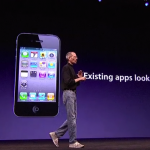
Yesterday, I recommended five things Apple should do during today's press conference about iPhone 4. Within hours of the post, Apple already had done two -- release a software update and informally deny that there would be an iPhone 4 recall.
During today's media event, Apple CEO Steve Jobs fully did two others: Offer free iPhone 4 cases and reveal number of iPhone 4 returns. For the other -- bringing out engineers -- Jobs instead personally discussed the engineering problems and showed that other phones display similar behavior, where human contact with certain areas of the phone can cause the signal bars to decline.
Recent Headlines
Most Commented Stories
BetaNews, your source for breaking tech news, reviews, and in-depth reporting since 1998.
© 1998-2025 BetaNews, Inc. All Rights Reserved. About Us - Privacy Policy - Cookie Policy - Sitemap.
